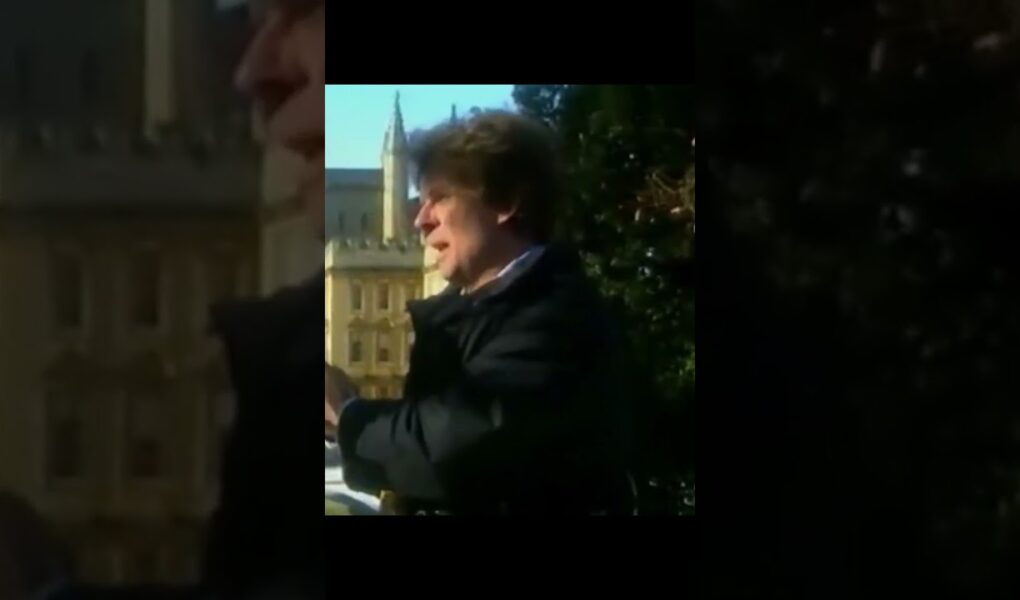Philosophy Overdose
A short clip of Galen Strawson discussing the problem of explaining consciousness. This comes from a 1996 program called Brainspotting.
#Philosophy #Consciousness
Source

Philosophy Overdose
A short clip of Galen Strawson discussing the problem of explaining consciousness. This comes from a 1996 program called Brainspotting.
#Philosophy #Consciousness
Source
Comments are closed.
Finally! Philosophy proper!
Spiritual Science is the next frontier. We have exhausted the Age of Reason, and must move beyond the perceptible, material world.
There IS a spiritual aspect of consciousness and how it interacts with reality.
Consciousness IS reality!
This is a pseudoproblem. I could just as well say that you can't "explain" (by these standards) any causal phenomenon, including a mechanical cause. It's surprising to hear a philosopher so influenced by Hume make this mistake. As Hume pointed out, ultimately the only explanations you ever get are correlations; there is nothing special about consciousness in this regard.
What would you take as an explanation of consciousness? If "all" the physical properties were identified, such that when those properties were operable, then consciousness happens, then you've explained it. Further, when that "physical sturr" is operable in humans, one has free will.
Regardless of the progress scientists achieve with the brain in a vat, are you side stepping the philosophic fundamental that consciousness is conscious and like that axiom, the faculty of volition is self evident.
Let's get on with it.
❤
My opinion you mean 😂
I must admit, I don’t see why having a complete physicalistic account of consciousness wouldn’t be a complete way of understanding the mind provided that we also have our inner experiences. We would have an understanding of the causal processes that underlie our mental life. What in the world is Mr. Strawson actually looking for as an explanation if not that?
yeah, but such physical "explanations" are how we "explain" literally everything. So complaining that you don't find such an "explanation" satisfying in this particular case is hardly evidence that there is something wrong with the "explanation" itself.
Brilliant!
We can’t know if we (each other) are conscious any more than a machine, we report the taste of salami. We just assume our fellow human is conscious as assume we are in ourselves. But there is no way of experiencing another’s qualia be they human machine or manufactured machine
Is there a full documentary/video?
What would an explanation of consciousness even look like? 🤷♂️
Consciousness is the totality of the sensory, emotional and cognitive experience of being. The sense of oneness.
This is what's called the hard problem of consciousness, and I have never heard it expressed so well.
Sounds silly, most reliable source of information and what enables experience is the senses.
Why some people think that description is the only way of grasping something? Description is actually the low end of intelligence.
Where is this taken from?
Spinoza’s parallelism is the only answer I find agreeable for this reason.
I think someday we will make a full cognitive map of the brain. It’s a type of computation like 1’s and 0’s of binary but it’s firing or not firing neurons. And we will understand perfectly how the light from a banana hits a retina, triggers a cascading computation across the brain, and then the organism reaches for and eats the banana. But we will never understand why there is a witness, a subjective experience of this process. It could do without one as a purely mechanical biological machine.
Parallelism to me is the only theory that makes sense. It’s such a beautiful but complex idea I won’t even try to cover it here but if you haven’t dived deep into Spinoza yet I highly recommend it
What buildings are those in the background?
Can we ever truly study consciousness? After all we will always being studying consciousness through the medium of consciousness. That looks like a problem with objectivity right there .
Bernardo Kastrup PhD PhD is for me the Galileo of Consciousness ✌️🕉️
I agree completely, correlation is not causation. Even if we accept that certain physical states in the brain correlate with certain sensitive experiences, that is not, however, an explaination of how one thing causes the other. In the universe of Harry Potter, saying "wingardium leviosa", while pointing an object with a magic wand, is correlated (100% of the time) with the fact that said object starts to levitate; but that is not an explanation of how one thing can possibly cause the other.